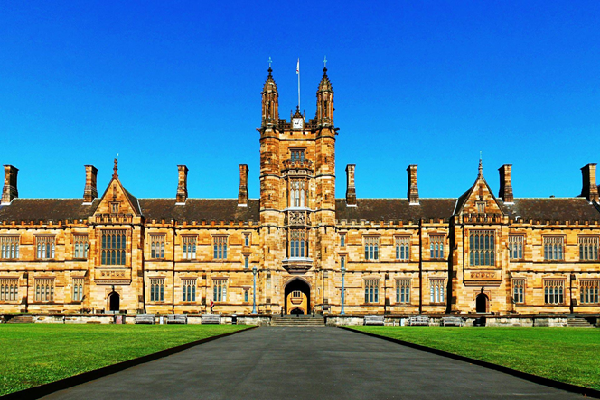Study Reveals Conflict Of Interest Policies At Australian Medical Schools Too Weak
A review examining conflict of interest policies at Australian medical schools has found they did not adequately address medicine-specific issues and were inconsistent across multiple institutions. Medicine-specific policies that were absent included addressing contact with sales representatives, industry funding of on-site sponsored education and use of free samples.
Although many universities do have established conflict of interest policies, these are mainly university-wide policies that do not address issues specific to commercial influence on medical practice.
The researchers say there needs to be a tailored conflict of interest policy purpose-built for Australian medical schools, due to the complex relationship between medical practice, education and industry.
Student and junior doctor interaction with the pharmaceutical industry often occurs throughout their education including on hospital and private clinic placements.
“Australian medical schools have an opportunity to develop national conflict of interest guidelines and policies that applies across the whole sector,” says senior author Professor Barbara Mintzes from the University of Sydney’s Charles Perkins Centre, Faculty of Medicine and Health.
“Strong conflict of interest policies are crucial to help protect students against industry influence in these formative years.
“Financial relationships with industry can detrimentally influence medical education and clinical decision making, which include inappropriate prescribing and overdiagnosis.”
The study
Published in the Internal Medicine Journal, researchers examined conflict of interest policies on 21 Australian medical school and host university websites. All policies examined were publicly available. The team also contacted the Deans of all medical schools to crosscheck if there were any additional policies.
Out of 155 policies, the study found only two policies were specific to medical schools. 153 were university-wide policies, which included ghost-writing, consulting, travel compensation and industry-funded speaking relationships.
Conflicts of interest policies were also found to be inconsistent on multiple issues or lacking detail.
Most Australian medical schools are subject to university-wide policies that require academics to disclose and manage potential conflicts of interest as part of an internal record. However, among the 21 medical schools with disclosure policies, none require academics to disclose conflicts of interest to the students they teach.
Three criteria were not addressed by any of the universities or medical schools. These were sales representatives, on-site educational activities and provision of free samples at training sites.
Only one other study has examined conflict of interest policies in Australian medical schools. A 2009 study (not involving researchers in this paper) found most conflict of interest policies were weak or missing, giving most universities a ‘D’ grade.
The researchers of the current study used the same grading scale and found there has been little progress in the last decade to improve and strengthen conflict of interest policies.
Of the universities and medical schools examined in the study, 17 out of 21 received a ‘D’, one school received a ‘C’, and three received a ‘F’.
Some policy improvement, but more change needed
Since 2009, the main policy improvement across universities was consulting roles and relationships, however the researchers say the value of medical school-specific conflict of interest policies protect students from industry influence.
“We know that strong medicine-specific policies can improve the decisions that doctors make,” says PhD Candidate and lead author Ashleigh Hooimeyer who is based at the University of Sydney’s Charles Perkins Centre and School of Pharmacy, Faculty of Medicine and Health.
“There is research evidence from the US that doctors who attended medical schools with stronger conflict of interest policies restricting gifts and sales representatives prescribe more appropriately than those who studied at schools with weaker policies.
“In one example doctors who attended psychiatry residency training programs with stronger conflict of interest policies had lower rates of prescribing of heavily marketed antidepressants without evidence of therapeutic advantages than those who attended medical schools without such policies.”
Australian medical schools need to ‘catch up’
The genesis of this study came when Members of the Australian Medical Students’ Association (AMSA) reached out to Professor Mintzes and her team. AMSA had just revised their own policy regarding medical students’ relationships with the pharmaceutical industry, which recognised the harm these relationships can do to medical learning and practice
and called for stronger action to prevent conflicts of interest at medical schools and in medical practice.
During revising AMSA’s policy, they realised the lack of research and attention on the topic.
“Australia is lauded for training some of the best doctors in the world; however, the failure of medical schools to regulate conflicts of interest puts these standards at risk,” said Dr Travis Lines, who was a member of AMSA’s executive team and a lead author on AMSA’s Pharmaceutical sponsorship and relationship with industry policy at the start of the study.
“There is abundant evidence that conflicts of interest distort the teaching that medical students receive. This means that Australian doctors learn the wrong things at medical school and make the wrong decisions as a result. Ultimately, failing to regulate conflicts of interests stops us from providing the best care to our patients.”
In 2008, in the US, the American Medical Students Association launched an assessment of strength of conflict of interest policies in US medical schools, with initial results showing only 21 of 150 schools had strong policies and many high-profile medical schools found to have to weak polices.
Since then, a 2021 international review of studies on conflict of interest polices in medical schools and teaching hospitals found extensive differences at medical schools in high-income countries. The study found North American medical schools had the strictest standards.
Australian medical schools had strong policies only for consulting (16 schools) and ghost writing (three schools). Canadian medical schools fared better than Australia but worse than the United States. The study found there was weaker oversight in medical education in Europe. In Germany only one of 20 medical schools had any strong polices and none in France.

